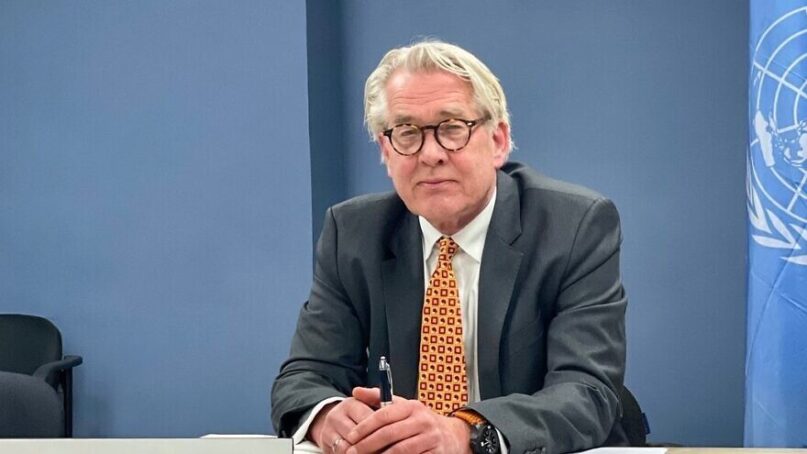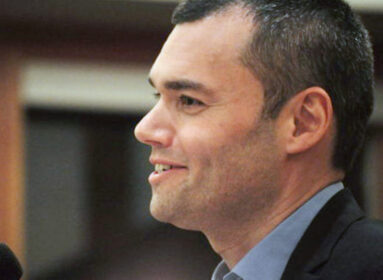
By Mike Wagenheim
(JNS) The Israeli-Palestinian conflict is “reaching a boiling point,” given a surge in violence in Jerusalem, Judea and Samaria, the United Nations’ point man in Jerusalem warned on Monday.
“High levels of violence…including attacks against Israeli and Palestinian civilians, increased use of arms, and settler-related violence, have caused grave human suffering,” U.N. Special Coordinator for the Middle East Peace Process Tor Wennesland told the Security Council during its monthly meeting on the Israeli-Palestinian file. “The current trends bring neither stability nor security for anyone.”
Wennesland urged the international community to condemn last week’s twin bus stop bombings in Jerusalem that killed two Israelis and injured around 20 others, as well as another Palestinian terror attack that killed three Israelis earlier this month in Ariel. The Norwegian also denounced what he termed “settler violence against Palestinians” in Hebron, adding that “the targeting of civilians can never be justified, and the violence must stop.”
Israeli Ambassador to the U.N. Gilad Erdan has been complaining for months that these monthly Security Council meetings have dwelled too much on the minutiae of the conflict, with Wennesland issuing reports detailing every violent incident, tribal dispute and municipal ruling.
On Monday, Wennesland, who gave an in-person briefing, chose to “provide a broader perspective” on the way forward, pledging to remain focused on both short-term violence and “de-escalating” projects, and on longer-term prospects for a political settlement of the conflict.
Wennesland told JNS that the adjusted framework had been in the works for some time, and he will be utilizing it going forward, but denied there was any connection to Erdan’s critiques.
United States Ambassador to the U.N. Linda Thomas-Greenfield, meanwhile, chided most U.N. actions dealing with the conflict, which she said are “not designed to advance direct negotiations, let alone achieve peace. They are only intended to denigrate Israel.” She called for a focus on concrete, life-improving steps, rather than grandstanding and pursuing unproductive measures.”
Lamenting the attention to the matter that has been drawn away by Russia’s invasion of Ukraine, Wennesland said that while progress on the ground seems to remain “stuck,” nothing about the conflict is static, telling the council and reporters afterward that “demographics are now running ahead of politics,” with increasing Israeli and Palestinian populations threatening the availability of land and natural resources, portending further violence.
He praised Israel for issuing more work permits to Gazans and for allowing new materials into the Gaza Strip amid concerns they could be used for terror infrastructure.
When asked by JNS whether he had made contact with Israel’s presumptive incoming government, Wennesland responded that he “deals with one government at a time” but noted his involvement in de-escalating last May’s 11-day Israel-Gaza aerial conflict while presumptive Prime Minister Benjamin Netanyahu was previously in office.
Responding to a reporter’s question about whether he expected added difficulties in dealing with Israel’s incoming government, given its inclusion of hardline right-wing elements, Wennesland quipped that “it’s hard to deal with any government in the Middle East.”
“It’s the Israeli population that are electing their own government. It is a process of the internal dynamics in Israel,” he said. “I can assure you one thing—the U.N. will work with this government in one way or another.”
Today, the U.N. hosts its International Day of Solidarity with the Palestinian People on the anniversary of the 1947 U.N. vote to partition the British Mandate of Palestine into Jewish and Arab states, a motion the Arab world rejected in a decision that Israel says still drives the conflict.
MAIN PHOTO: U.N. Special Coordinator for the Middle East Peace Process Tor Wennesland, Jan. 26, 2021. Credit: UNSCO Photo by Daniela Penkova.








 Southern New England Jewish Ledger
Southern New England Jewish Ledger










